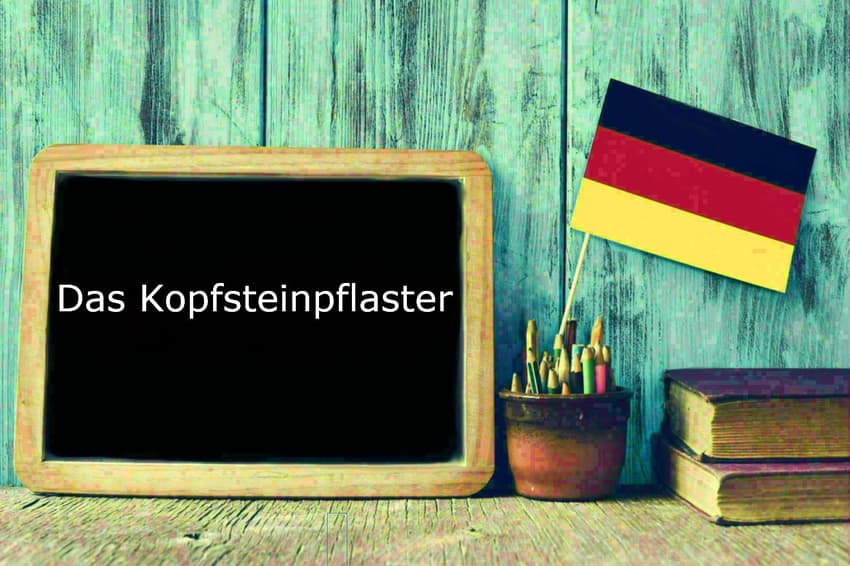German word of the day: Das Kopfsteinpflaster

Today’s word of the day sounds aggressive – but don’t worry, it really isn’t.
Kopfsteinpflaster translates to “head stone paving.” And it doesn’t really get better – Kopfsteinpflaster is a word for a sort of paving that is called Katzenkopfpflaster (cat head paving) in Germany.
So before you call the animal protection, let me explain. In old cities, you often find roads in which coating is made from numerous small, bumpy stones, commonly called cobblestones in English.
They are always slippery and shiny when it rains and are a real Stolperfalle (“tripping hazard”). That coating is called Kopfsteinpflaster.
The word is a combination of the words Kopfstein and Pflaster. The word Kopfstein is used to compare the stones in the paving to heads.
That is because these stones are round on top and therefore resemble heads – if these heads are human or even cat’s heads doesn’t matter.
Pflaster is one of these evil words that have two meanings. It can either mean band aid or paving. In this case, it obviously means paving.

A man walking over slippery 'Kopfsteinplaster' in Munich. Photo: DPA
Examples:
Ich bin nach dem Regen gestern auf dem Kopfsteipflaster ausgerutscht.
After the rain yesterday, I slipped on the paving.
Kopfsteinpflaster verleihen einer Altstadt immer ein ganz besonderes Flair.
Head stone pavings always give a special flair to an old city.
Comments
See Also
Kopfsteinpflaster translates to “head stone paving.” And it doesn’t really get better – Kopfsteinpflaster is a word for a sort of paving that is called Katzenkopfpflaster (cat head paving) in Germany.
So before you call the animal protection, let me explain. In old cities, you often find roads in which coating is made from numerous small, bumpy stones, commonly called cobblestones in English.
They are always slippery and shiny when it rains and are a real Stolperfalle (“tripping hazard”). That coating is called Kopfsteinpflaster.
The word is a combination of the words Kopfstein and Pflaster. The word Kopfstein is used to compare the stones in the paving to heads.
That is because these stones are round on top and therefore resemble heads – if these heads are human or even cat’s heads doesn’t matter.
Pflaster is one of these evil words that have two meanings. It can either mean band aid or paving. In this case, it obviously means paving.

A man walking over slippery 'Kopfsteinplaster' in Munich. Photo: DPA
Examples:
Ich bin nach dem Regen gestern auf dem Kopfsteipflaster ausgerutscht.
After the rain yesterday, I slipped on the paving.
Kopfsteinpflaster verleihen einer Altstadt immer ein ganz besonderes Flair.
Head stone pavings always give a special flair to an old city.
Join the conversation in our comments section below. Share your own views and experience and if you have a question or suggestion for our journalists then email us at [email protected].
Please keep comments civil, constructive and on topic – and make sure to read our terms of use before getting involved.
Please log in here to leave a comment.